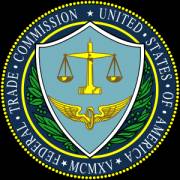 It’s hardly news that the Obama Administration is no friend of so-called “Patent Assertion Entities,” or PAEs. Not only members of the administration, but the big man himself have spoken publicly against those companies that make a business model out of buying and asserting patents, as compared to universities and others that actually develop, and then license, new technology (sometimes referred to as “Non-Practicing Entities,” or NPEs).
It’s hardly news that the Obama Administration is no friend of so-called “Patent Assertion Entities,” or PAEs. Not only members of the administration, but the big man himself have spoken publicly against those companies that make a business model out of buying and asserting patents, as compared to universities and others that actually develop, and then license, new technology (sometimes referred to as “Non-Practicing Entities,” or NPEs).
Most of what little we know about the business strategies, licensing practices and economics of PAEs has been gleaned from disclosures made in the course of litigation. Now the Federal Trade Commission has decided to gather some first-hand information on exactly how PAEs operate. And, because it is a regulatory agency, it can do so by asking the PAEs themselves to respond, and under oath, to boot.
| The FTC announced its intentions on September 27 to initiate a so-called “6(b) request” to approximately 25 as-yet unnamed PAEs, as well as 15 similarly still-unknown manufacturers, NPEs, and others engaged in technology licensing (the name derives from the section of the Federal Trade Commission Act which provides authority for such requests). Presumably the 15 non-PAEs are intended to provide a control group that will permit the FTC to compare “normal” patent licensing economics and practices with those disclosed by the PAE response group. Not surprisingly, the request will focus on parties active in the wireless communication space, which has spawned the largest, most contentious, and most numerous patent suits of late.
Noting that it has “unique Congressional authority to collect nonpublic information,” the FTC will inquire into licensing agreements, patent acquisition information, cost and revenue data, and similar matters intended to “provide a more complete picture of PAE activity.” More particularly, it intends to pose the following questions to those selected to be the subjects of the study: |
Have YOU Discovered the Alexandria Project? $2.99 or less at Amazon, iTunes,Barnes & Noble and GooglePlay |
• How do PAEs organize their corporate legal structure, including parent and subsidiary entities?
• What types of patents do PAEs hold, and how do they organize their holdings?
• How do PAEs acquire patents, and how do they compensate prior patent owners?
• How do PAEs engage in assertion activity (i.e. demand, litigation, and licensing behavior)?
• What does assertion activity cost PAEs? and
• What do PAEs earn through assertion activity?
Needless to say, others in the technology marketplace, and particularly those who are currently subject to demands from PAEs, will take great interest in the responses as well.
Before the FTC can compel private sector parties to divulge such information, however, it must first comply with the rules established under another law – the Paperwork Reduction Act, which requires it to obtain approval from the Office of Management and Budget (OMB). And before doing that, it must open a sixty day comment period during which the public (such as PAEs and other entities that think they may receive one of the requests) can comment on the following topics:
• whether the proposed collection of information is necessary for the proper performance of the functions of the FTC, including whether the information will have practical utility;
• the accuracy of the FTC’s estimate of the burden of the proposed collection of information;
• ways to enhance the quality, utility, and clarity of the information to be collected; and
• ways to minimize the burden of collecting information.
For its part, the FTC estimates that the labor costs per company would range from c. $4,000 and $19,000, with non-labor costs approximating $500 per respondent.
While the FTC announcement stated that the opening of the comment period should have commenced last week, the government shutdown intervened. When non-essential FTC operations once again resume, a notice will appear in the Federal Register, and comments will be accepted both by mail as well as on line at this address.